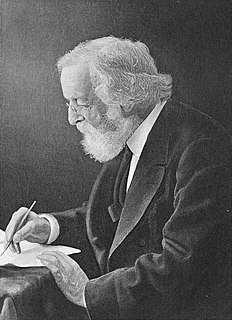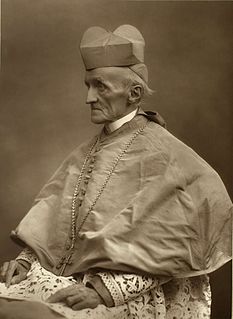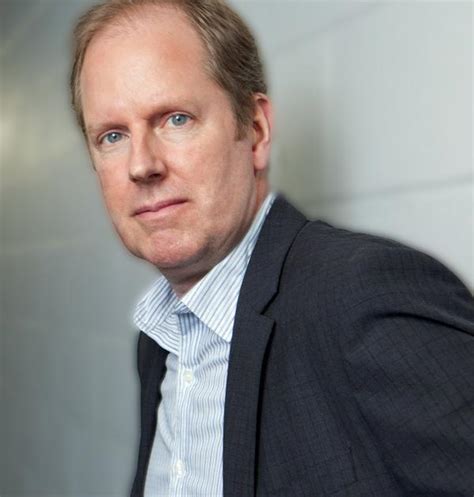A Quote by James Freeman Clarke
The art of life consists in taking each event which befalls us with a contented mind, confident of good. ... With this method ... rejoice always, though in the midst of sorrows, and possess all things, though destitute of everything.
Related Quotes
We are to take no counsel with flesh and blood; give ear to no vain cavils, vain sorrows and wishes; to know that we know nothing, that the worst and cruelest to our eyes is not what it seems, that we have to receive whatsoever befalls us as sent from God above, and say, "It is good and wise,--God is great! Though He slay me, yet I trust in Him." Islam means, in its way, denial of self. This is yet the highest wisdom that heaven has revealed to our earth.
God alone fully understands what each one of us needs; we make mistakes continually and pray for things which would be harmful to us if we received them. Afterwards we see our mistakes and realize that God is good and wise in not giving us these things, even though we plead ever so earnestly for them.
For why, my brothers and sisters, would you rejoice in silver? Either your silver will perish, or you will, and no one knows which will perish first. For neither can you remain here always, nor can silver remain here always; so also with gold, wardrobes, houses, money, real estate-and in the end, even the light by which we enjoy all these things. So do not be willing then to rejoice in such things as these. Rejoice instead in the light that has no setting; rejoice in the dawn which no yesterday precedes, and no tomorrow follows.
It consists in a watchful, minute attention to the particulars of our state, and to the multitude of God's gifts, taken one by one. It fills us with a consciousness that God loves and cares for us, even to the least event and smallest need of life; and that we actually have received, and do now possess as our own, gifts which come direct from God. It is a blessed thought, that from our childhood God has been laying His fatherly hands upon us, and always in benediction; that even the strokes of his hands are blessings, and among the chiefest we have ever received.
An entertainment is something which distracts us or diverts us from the routine of daily life. It makes us for the time being forget our cares and worries; it interrupts our conscious thoughts and habits, rests our nerves and minds, though it may incidentally exhaust our bodies. Art, on the other hand, though it may divert us from the normal routine of our existence, causes us in some way or other to become conscious of that existence.
I fear I have not one good word to say this fair morning, though the sun shines so encouragingly on the distant hills and gentle river and the trees are in their festive hues. I am not festive, though contented. When obliged to give myself to the prose of life, as I am on this occasion of being established in a new home I like to do the thing, wholly and quite, - to weave my web for the day solely from the grey yarn.
We think that play and fairytales belong to childhood - how shortsighted that is! As though we would want at any time in our life to live without play and fairytales! We give these things other names, to be sure, and feel differently about them, but precisely this is the evidence that they are the same things, for the child too regards play as his work and fairy tales as his truth. The brevity of life ought to preserve us from a pedantic division of life into different stages - as though each brought something new.
The success of everything depends on intuition, the capacity of seeing things in a way which afterwards proves to be true, even though it cannot be established at the moment, and of grasping the essential fact, discarding the unessential, even though one can give no account of the principles by which this is done.
Art and poetry cannot do without one another. Yet the two words are far from being synonymous. By Art I mean the creative or producing, work-making activity of the human mind. By Poetry I mean, not the particular art which consists in writing verses, but a process both more general and more primary: that intercommunication between the inner being of things and the inner being of the human Self which is a kind of divination (as was realized in ancient times; the Latin vates was both a poet and a diviner). Poetry, in this sense, is the secret life of each and all of the arts.






































